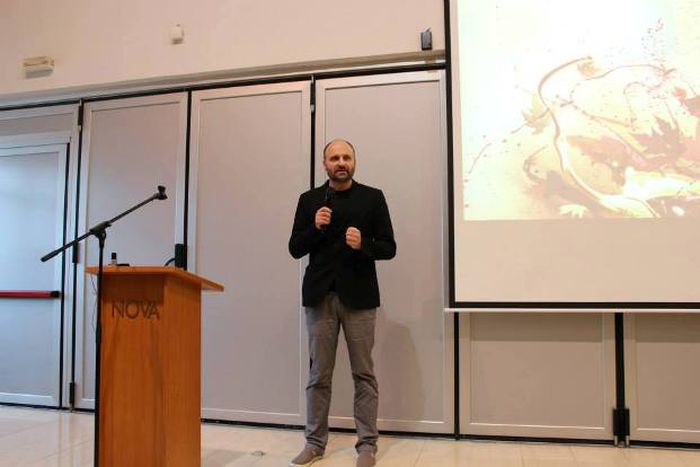
Engaging Fully in Modern Society
Published on
“Introduce yourselves, involve more participants, don’t speak too fast, and create more structure in the presentation.” Those were the bullet points of advice that teacher Melissa Mitreski passed on to her students after they facilitated an interactive session on racism and sexism in modern society at Nova International High School in Skopje, Macedonia.
Article by Austin Fast
“Introduce yourselves, involve more participants, don’t speak too fast, and create more structure in the presentation.” Those were the bullet points of advice that teacher Melissa Mitreski passed on to her students after they facilitated an interactive session on racism and sexism in modern society at Nova International High School in Skopje, Macedonia.
On 14-17 November 2013, Nova hosted 80 students from eight member schools of the Central and Eastern European Schools Association (CEESA) for a “hands-on student involvement conference” (HOSIC) to discuss, debate and explore their chosen theme of “Modern Society.”
Although Nova staff handled some aspects of planning the event, Nova students such as 15-year-old Nikola Danev took the lead and got valuable experience from organizing the conference including 12 presentations and two keynote speakers, plus a cultural tour of Skopje and social events around the city.
“I managed to bring together so many people from so many cultures, and all of them minors which makes it even harder because there’s then more responsibility,” Nikola says. “Now I know how things work. Not everything is as neat as you think it would be.”
Students from Nova and seven other international schools from cities such as Moscow, Kiev, Prague and Vienna selected the main theme together and then designed their own 40-minute presentations around a subtopic of that theme. Groups of students chose topics on diversity, youth activism, migration, communication, dating and music in modern society, and prepared presentations using all sorts of methods including skits, videos, plenary discussions and games.
“This isn’t a competition,” Melissa says. “Students come because they want to present, build their skills and network.”
Nikola adds that developing critical thinking toward modern society and intercultural exchange were the biggest outcomes of the conference.
“There was so much trading of experience and discussions during the breaks related to modern society,” Nikola says. “We got to learn a bit about the cultures of 37 nationalities (represented at the conference), and some people considered some things to be wrong and unethical, and others considered them to be necessary. So they heard various opinions and then they could bring their own conclusions.”



